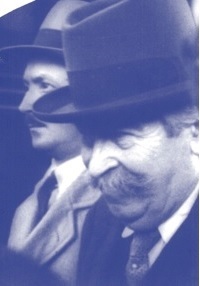Europe before Europe
Europe has never been total political unity. At certain times, a large part of the continent was dominated by a single power. Which was imposed by force.
So it was the case of’Empire romain, de l’Empire carolingien, de l’Napoleonic Empire, Some royal families, through relationships dynasties, could govern a large number of European countries, especially the Habsburg family.
The French Revolution innovative in its ambition to expand, not by force but by persuasion, revolutionary values across Europe, but without much success.
Napoleon tried to impose revolutionary values over most of Europe under domination. Warterloo en 1815 marks the end of the experiment.
At the fall of the Empire, Congress of Vienna, the 26 September 1815, has created a European order in which relations between states are contracted out, the Sainte-Alliance meet in a "congress system" the Russian Empire, the Austrian Empire and the Kingdom of Prussia, soon joined by the France of Louis XVIII 1818. It is the first treaty postulating a single nation in Europe, signed by all the countries of the continent (except England and the Vatican). But she did not build a Europe, it was a revolutionary alliance against.
The idea of the United States of Europe
The European idea is old. It was built gradually from the sixteenth century, developed in the eighteenth century including the abbot of Saint-Pierre (Project to make perpetual peace in Europe, 1713), Jean-Jacques Rousseau (Extracts and judgments on project perpetual peace, 1756), and Emmanuel Kant (Essay on perpetual peace, 1795).
La War 1870 marked a regression on the path of European integration but its horrors have advanced the idea of a Europe conceived as a source of peace, it will be the same after World War I. The idea’U.S. Europe was expressed in Victor Hugo from 1849, in a speech at the occasion of the opening of the Peace Congress in Paris, he repeated with more force 1871, in a speech to the Chamber of Deputies. As Briand fifty years after him, he says the Franco-German reconciliation as the condition of the birth’United States of Europe, based on republican values :
"Reaching hands with us, forget the crimes that military despots made us commit, against each other. Proclamons : freed, equality, the brotherhood of peoples. Through our alliance, basing the United States of Europe. »
Speech 21 août 1849.
"And we hear the shout France : It's my turn ! Germany, this is me ! Am I your enemy ? Not ! I'm your sister. I just picked you, and I give you all, a condition : is that we do more one people, one family, one republic. Je vais démolir mes forteresse, you'll destroy yours. Ma vengeance, it is brotherhood ! More borders ! The Rhine at all. Let the same Republic, let the United States of Europe, let the continental federation, let the European freedom, let universal peace ! »
Speech from March 1 1871.


